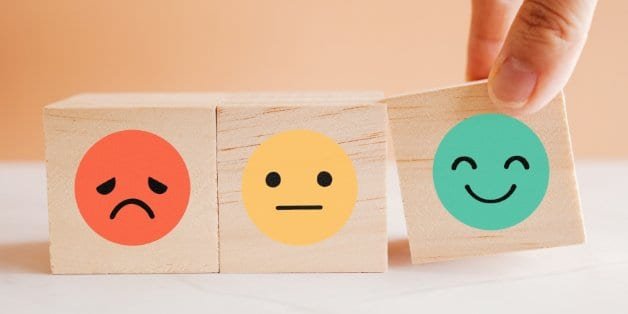Finding Steady Ground After the Storm
How do you measure mental health when life’s just kicked your ass? After my wife of twenty years left for America last year and a close friend died, I found myself just going through the motions, wondering what “mentally healthy” even looks like anymore.
Table of Contents
Work gave me structure—teaching English a couple days a week, working the farm on others. A schedule to hold onto when everything else felt like it was sliding away.
In those early days after she left, the smallest things in my now-empty apartment became these weird little victories—cleaning the kitchen, fixing my bike, folding laundry for the next day.
I’d done these same tasks for years as part of our shared life. Now I was doing them just for me. They felt hollow but also kind of triumphant in a way I can’t quite explain. Is that recovery? Or just survival with a different name?

The Racing Mind Behind a Calm Face
Months pass. The sharp edge of grief dulls if you’re lucky. My routines got more solid—eating better, walking more, keeping myself busy. Saturdays I take this forty-minute walk to work, and honestly, the rhythm of just moving and breathing fresh air has become its own kind of therapy.
This morning I slept okay, got up early, studied some Japanese, got ready for work like usual. Two pairs of clean jeans were hanging in my closet—I grabbed the worn pair by mistake, didn’t notice until I was already at work waiting for my first student.
Ten years ago, that wouldn’t have happened. Simple mistake—similar pants hanging next to each other—or something deeper? My mind still racing under what looks like a calm surface?
When your thoughts won’t shut up—replaying memories, running through different scenarios of how things could have gone—how do you know if you’re okay? Physical health is easier—you eat right, you move your body, you feel better. But when your brain keeps churning underneath everything, what tells you you’re mentally solid?

Is There Even a Test for This?
Is there a real test for mental health? Something that says “Yeah, you’re good” or “Nope, you need help”? Physical health has clear numbers—blood pressure, cholesterol—but the mind doesn’t work like that.
Therapists might look at certain things—how you’re sleeping, whether you can focus, how you handle your emotions—but life’s messier than any checklist.
I can chat with strangers, have conversations like I always did, while feeling this constant hum of… something… behind my eyes. Does looking fine to the world mean you are fine? Or are you just good at covering?
Have you ever felt like you’re functioning well on the outside while something’s still off on the inside?
Better or Just Different?
When big loss or stress breaks something in you, does fixing it make you stronger or just different?
After everything fell apart, I kept doing what I needed to do—kept teaching, kept farming, kept showing up. Same people, same interactions, mostly the same me.
Am I still the same person at my core—friendly, generous, someone who gives a damn? I think so. Still offering coffee to coworkers, listening when they need to talk. But little things have shifted. Some evenings my patience runs out faster. I catch myself mentally drifting during conversations more than I used to.
Life’s hard stuff has definitely changed me. But did it take something essential away? You tell yourself you’ve healed—work’s going fine, grabbing the wrong jeans isn’t exactly a crisis—but are you really the same with people?
Are you still you, or some carefully rebuilt version that’s close enough?

What Comes Next?
How do you start moving toward a future instead of just surviving today? I’ve lived that way—just checking off necessary tasks, getting through each day. But eventually you need something more than that.
Some people respond to major change by blowing up their whole life—selling everything, moving, starting completely fresh.
I did that once, moving from the US to Japan for love and family. Learned that memories follow you—they just have different scenery. Now I’ve got roots here—the tractors, the classrooms, the rhythms I’ve built. Starting over somewhere else doesn’t appeal like it used to.
What keeps you sane during big transitions? For me, it was finding some balance between thinking about what happened and just getting on with things—sometimes talking it through, sometimes just showing up no matter how I felt. I’m still figuring that out, honestly.
What’s helped you stay grounded when everything shifted?
The Gap Between How You Look and How You Feel
Maybe the hardest part is looking fine while processing chaos inside.
At work, I genuinely smile at students, ask about their weekends with real interest—while my brain’s replaying my wife’s fist bump at the train station, or my mother’s blank stare in the care home.
How do you know you’re mentally healthy when you can hold it together on the outside but everything’s still churning underneath?
Maybe being healthy isn’t about stopping the internal storm completely. Maybe it’s about functioning alongside it—knowing it’s there without letting it drown you. Or maybe that’s just what resilience is—life hits you hard and you don’t go under. You stay afloat.

Finding Some Peace
There’s no quick fix for a mind that won’t shut up. Exercise helps, eating decent food matters, routines give you something to hold onto—but none of it completely silences the noise.
Ten years ago, grabbing the wrong jeans would have bothered me. Today I recognize it’s just a small mistake, not proof I’m falling apart. Work still feels meaningful. Regular walks clear some of the mental clutter. Small good actions add up to something over time.
This Isn’t a Pity Party
I’m not looking for sympathy here. Just thinking out loud about how we measure whether we’re okay when life’s been rough.
Practicing gratitude helps—it really does shift something when you’re grateful for what’s still here instead of only seeing what’s gone.
Maybe mental health isn’t about reaching some perfect inner peace. Maybe it’s just recognizing the storm’s still there while you keep standing in it anyway.
What helps quiet your mind when it won’t stop? What keeps you steady during the hard seasons?

Share your thoughts below. I respond to all comments, and your experience often helps others more than mine does.




